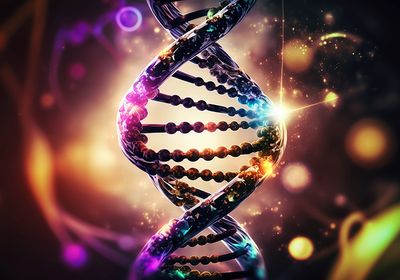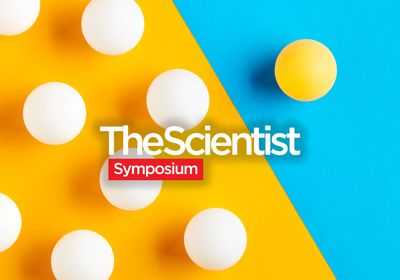ABOVE: © ISTOCK.COM, ANYAIVANOVA
Mice that recover from infection can pass on stronger immunity to their future pups, according to a new study that expands the known effects of epigenetics in mammals.
“We wanted to test if we could observe the inheritance of some traits to subsequent generations, let’s say independent of natural selection,” says Jorge Dominguez-Andres, an immunologist at Radboud University Nijmegen Centre in the Netherlands and coauthor on the study. “And what we observed is that the offspring of the mice that had survived infection were more resistant to infections.”
Transgenerational transmission of traits related to the immune system have been seen before in plants, birds, and invertebrates, including flies, beetles, and worms. To test whether a similar mechanism operates in mammals, Dominguez-Andres and his colleagues exposed adult mice to infectious fungi or zymosan, particles made from yeast used to stimulate the immune system. When either parent was subjected to the real or simulated infection, the offspring showed a stronger immune response to potential pathogens, including E. coli bacteria, than controls whose parents hadn’t been subjected to an immune system challenge. They had lower numbers of the bacteria in their lungs and liver, as well as higher concentrations of immune cells and pro-inflammatory cytokines. The effect persisted further: offspring of these second-generation mice also showed a lower bacterial burden after infection.
“I’m really curious to see how the scientific community sees this paper. I’m sure there’ll be some criticism,” says Dominguez-Andres. The new paper was only accepted for publication after the authors replicated the experiments, originally conducted at the University of Athens, in a separate lab at University Hospital in Lausanne, Switzerland.
The study, published today in Nature Immunology, could raise hackles because it references Jean-Baptiste Lamarck, a French naturalist who proposed that organisms pass to offspring those characteristics acquired during their lifetimes. So, for example, a giraffe that constantly stretched its neck muscles to reach high leaves would pass on a longer neck. Lamarckism is often framed as a competitor to Darwin’s theory of natural selection.
The authors write in the paper: “Our data suggest the existence of Lamarckian mechanisms modulating immunological traits over generations that may cause evolutionary advantages.”
“This should be subject to much more research in different places with different strains of mice grown under different conditions,” Dominguez-Andres says. “Probably the results might differ in different settings. But we are confident and convinced that this would be reproduced with other types of mice and other species of pathogens.”
In the meantime, “I think it looks convincing,” says Oded Rechavi, a neurobiologist at Tel Aviv University who studies transgenerational inheritance and was not involved in the study. “You can see that they did multiple different techniques and checked it from many different directions.”
Deepshika Ramanan, a microbiologist who studies the nongenetic transfer of immunological traits at Harvard Medical School and who also did not participate in the study, agrees: “It’s not a farfetched idea because it does happen in insects and birds and so on.”
One weakness of the study, she says, is that the results do not clearly show how the enhanced immunity is being transferred from parent to offspring.
Tests on offspring mice showed the stronger response to infection was associated with altered patterns of gene expression in myeloid cells in the bone marrow, which are known to be important for a phenomenon known as trained immunity, in which the innate immune system develops a “memory” of pathogens to boost future responses.
That does not explain how the mice passed on trained immunity to offspring who had never directly experienced infection. The study did find that fungal infection induced changes in sperm DNA methylation, an epigenetic process that can alter how genes are expressed in offspring.
But Ramanan points out that female mice who recovered from infection in the study also produced offspring with fortified immune systems. “They say it’s through the sperm, but I feel like there still needs to be more work on how mothers are transmitting it,” she says.
Dominguez-Andres says his group is now working to try to better understand the epigenetic mechanism involved. They also plan new experiments to check on whether the age of the mice when they are exposed matters, and if parents’ infections affect aging and inflammation in offspring mice. “And, of course, to what extent does this happen in humans.”






